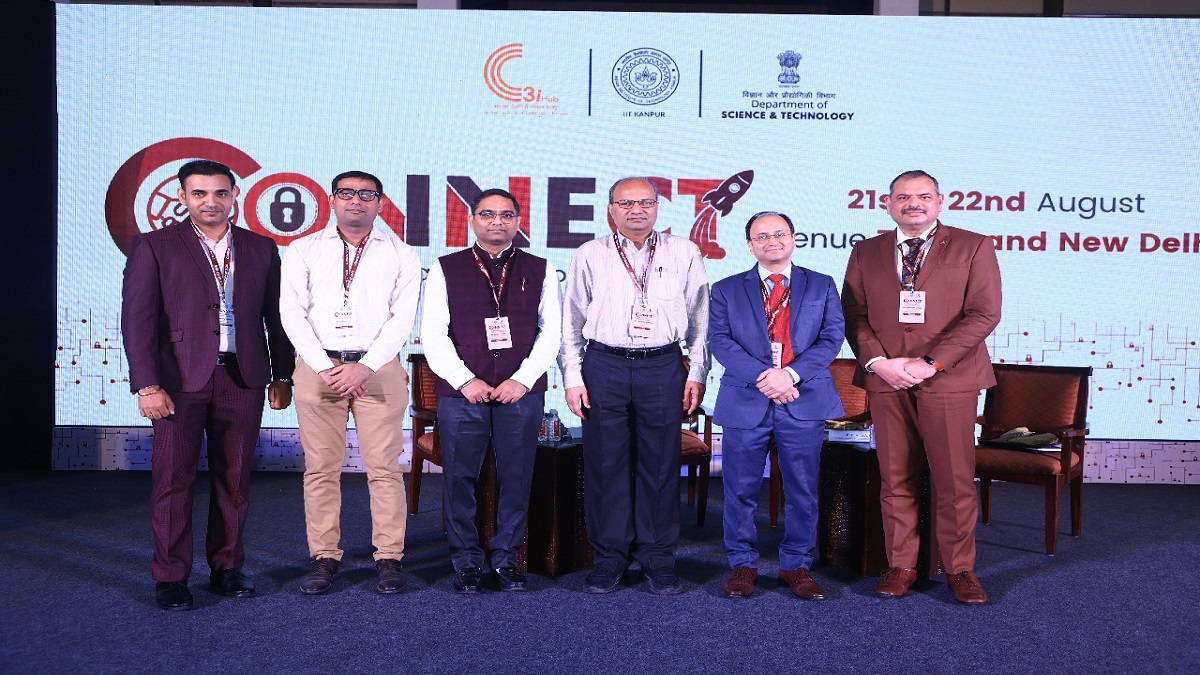IITs Working on Open-Source AI Platform: IIT Kanpur Director
IIT Kanpur Director discussed importance of indigenous solutions cautioning that foreign made cyber security products, though widely used grant external vendors deep access to critical systems posing national vulnerabilities.
In an exclusive interaction with Shiksha.com, Prof. Manindra Agrawal, Director of IIT Kanpur and Chairman of C3iHub confirmed that Indian Institutes of Technology are working together in a consortium to develop an open-source AI platform similar to ChatGPT.
Prof. Agrawal’s comment came on sidelines of C3iHub Connect 1.0, Startup Demo Day 2025 held in Delhi where IIT Kanpur’s cyber security innovation hub unveiled five products from its incubated startups.
Five Important Products Launched
Highlight of Connect 1.0 was the showcase of home-grown technologies spanning drones, surveillance, blockchain forensics IoT compliance and cyber threat intelligence:
Aerosys Aviation India Pvt. Ltd. launched the Eliminator Kamikaze Drone, designed for GPS-denied environments with autonomous precision strike capability.
Maraal Aerospace unveiled TEJASVAAN, a high-altitude, solar-powered unmanned aircraft with 12-hour ISR endurance.
SecureDApp introduced SecureTrace, a blockchain forensic platform to track and analyse illicit crypto transactions.
xIoTz presented its RCS framework, pre-built compliance packs aligned to global cyber security standards.
Saptang Labs launched BlackFence, a national-scale cyber threat intelligence platform to counter phishing, fraud, impersonation, and brand abuse.
These innovations, incubated at C3iHub, mark a strong step toward India’s technological sovereignty and indigenous deep-tech capability.
Cyber Security: Escalating Threats and AI Challenge
On broader cyber security landscape, Prof. Agrawal stressed that attacks in India more than doubled in 2023–24 compared to the previous year, fueled by increased digitisation and digital transactions. He also highlighted strategic importance of indigenous solutions, cautioning that foreign-made cyber security products, though widely used, grant external vendors deep access to critical systems, posing national vulnerabilities.
Discussing AI’s role he said: “Attackers are using AI engines to launch attacks, so defense also requires AI engines to anticipate changing patterns and stop them.” He also warned about the emerging risks within AI systems themselves, noting that large language models (LLMs) can be manipulated to produce misleading answers, raising concerns around privacy, trust, and national security.
Read More
Yes, IIT Kanpur offer the most spacious hostels and the largest rooms for the students along with 22 hours of eating facilities available in the campus ranging from some well-known food chains to hostel canteens which are well-stocked. Every hostel has a basketball court, few badminton courts, a volleyball court, table tennis room, a television room, a computer room, a reading room for newspaper, magazines, journals, etc., and a hall office to handle hostel affairs.
Follow Shiksha.com for latest education news in detail on Exam Results, Dates, Admit Cards, & Schedules, Colleges & Universities news related to Admissions & Courses, Board exams, Scholarships, Careers, Education Events, New education policies & Regulations.
To get in touch with Shiksha news team, please write to us at news@shiksha.com

Abhay Anand is an experienced education journalist with over 15 years in print and digital media. Currently serving as Manager- Editorial at Shiksha.com, he specializes in higher education policy, student mobility,
Read Full Bio
The IIT kanpur area in acres is around 4.3 square kilometres, that is 1037 acres. The Institute is establsihed by the Government of India. The campus is equipped with all necessary ammenities.